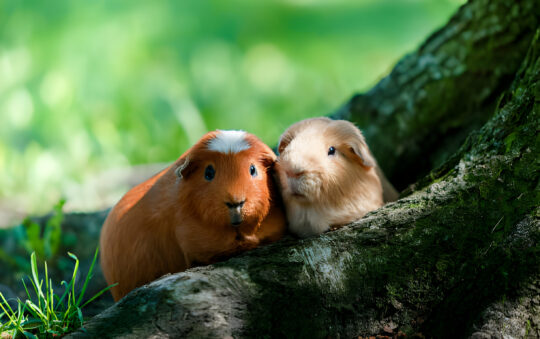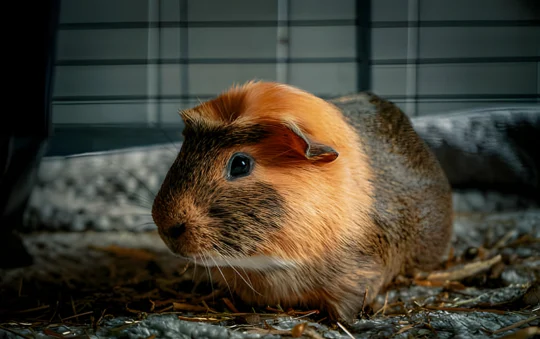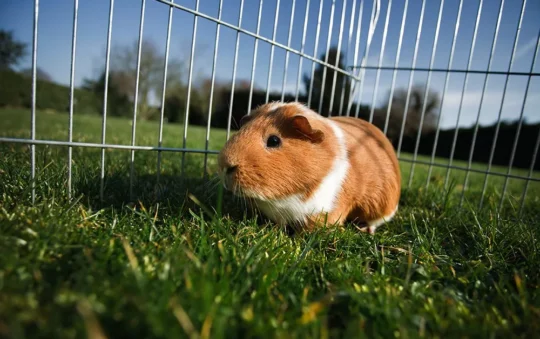Guinea pigs, often referred to as “cavies,” have carved out a special place in the hearts of countless households worldwide. Despite their diminutive size, these delightful creatures bring immeasurable joy and companionship to those fortunate enough to welcome them into their homes. In this exploration of the fascinating world of guinea pigs, we will delve into their rich history, unique characteristics, and essential care tips that ensure a harmonious relationship between these small companions and their owners.
The History of Guinea Pigs: Originating from the Andes region in South America, guinea pigs boast a history that spans thousands of years. Initially domesticated by the indigenous people of the Andes for sustenance, these small rodents eventually transcended their role as mere sources of food to become cherished pets. The 16th century saw Spanish explorers introducing guinea pigs to Europe, where they rapidly gained favor among the aristocracy.
Over the years, guinea pigs underwent a transformative journey, evolving from practical uses to beloved companions. Today, they are celebrated as delightful and social animals, finding a special place in the hearts of pet lovers globally. Their journey from the Andes to European aristocracy and beyond is a testament to their adaptability and endearing qualities.
Unique Characteristics of Guinea Pigs: Guinea pigs have a wide range of endearing characteristics that make them stand out among other creatures. They are best known for their vocalizations. Unlike many other small pets, guinea pigs are notably vocal, communicating through a range of sounds, from contented purrs to enthusiastic squeals. The bond between guinea pig owners and their furry friends becomes stronger when they understand these vocal cues.
Another distinctive characteristic is their highly social nature. Guinea pigs thrive on companionship, making it advisable to keep them in pairs or groups to prevent loneliness and ensure their overall well-being. Social interactions among guinea pigs include grooming, cuddling, and the delightful phenomenon known as “popcorning,” where they joyfully jump and twist in the air, showcasing their happiness.
Essential Care Tips for Guinea Pigs: Ensuring the health and happiness of guinea pigs requires diligent care. Providing spacious housing is fundamental, as guinea pigs need ample room to move around and explore. A large, well-ventilated cage with hiding spots and a cozy bedding area serves as the foundation for their well-being.
Maintaining a balanced diet is equally vital. A guinea pig’s nutrition should consist of high-quality hay, fresh vegetables, and a small amount of specially formulated guinea pig pellets. Owners should be cautious about avoiding foods that are toxic to them, such as chocolate and certain fruits. A well-balanced diet not only sustains their physical health but also contributes to their overall happiness.
Regular veterinary check-ups play a crucial role in the care of guinea pigs. Routine visits help in the early detection and management of potential health issues, ensuring a longer and healthier life for these beloved pets. A veterinarian monitors a patient’s weight, dental health, and general well-being during these visits.
To keep guinea pigs mentally stimulated, owners should provide enrichment activities. Toys, tunnels, and items they can chew on are excellent choices to prevent boredom and foster a happy, active lifestyle. Mental stimulation is integral to their overall well-being, creating an environment that promotes contentment.
In conclusion, guinea pigs may be small, but their impact on the lives of their owners is immeasurable. By delving into their history, understanding their unique characteristics, and adhering to essential care tips, a fulfilling and joyful experience as a guinea pig owner is guaranteed. Stay tuned for the next part of our guinea pig series, where we’ll explore the diverse breeds and colors of these delightful companions.



